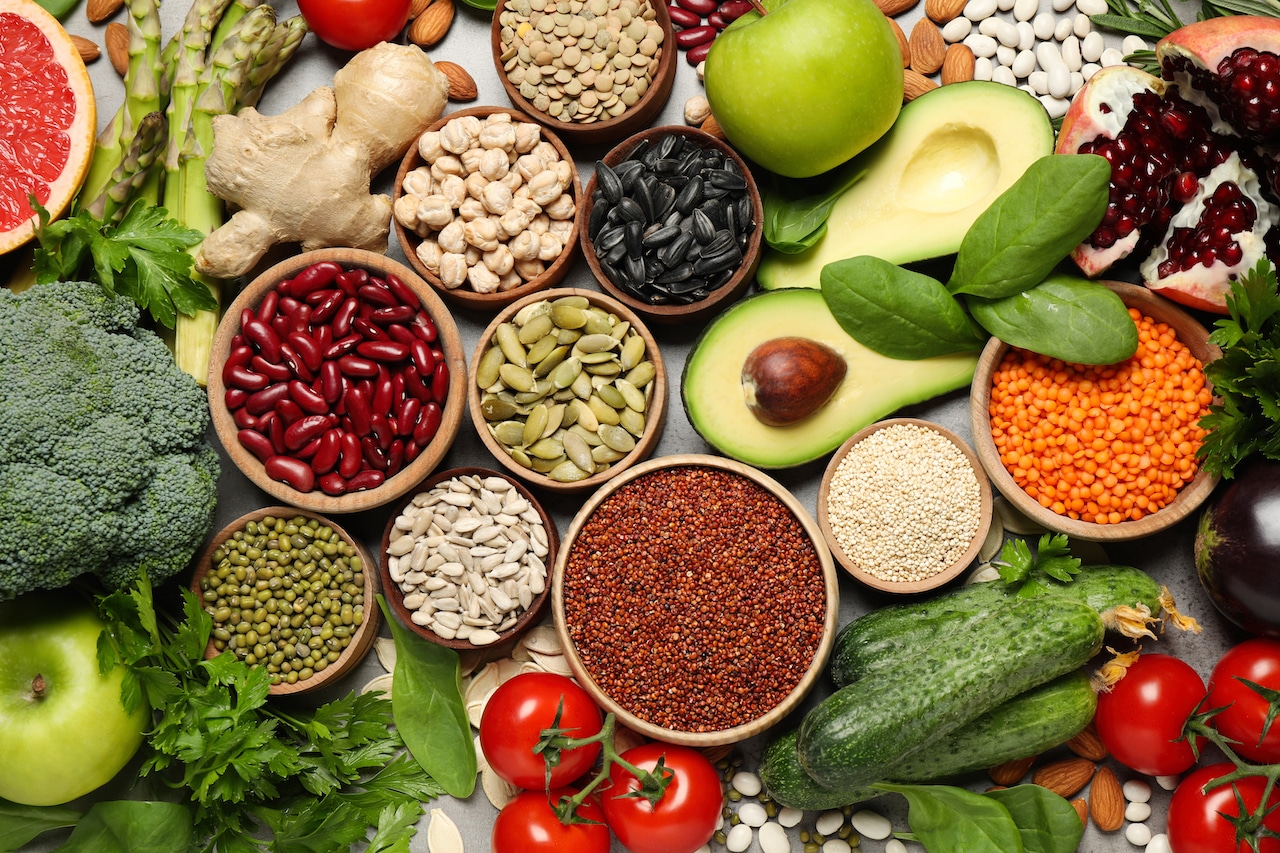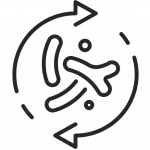The big five against viruses


Who are the “Big Five” against viruses? Due to the Covid-19 virus, there is currently active research into substances with the greatest protective potential against this and other viruses. The proven antiviral effects of some elements far surpass those known, and the five “winners” include: vitamin C and D, quercetin, zinc, and melatonin.
How do they work?
These five nutritional elements have clearly proven their antiviral effectiveness, preventing the virus from entering the host’s cell and multiplying there, as well as helping to get rid of the toxins “produced” by the virus, which are responsible for our bad feeling when we get sick.
Vitamin C
Long known to support healthy immunity, vitamin C can shorten the duration of colds, reduce symptoms and inflammation, and reduce the risk of catching a cold. This is largely due to the beneficial immunomodulatory properties of vitamin C in patients with viral infections, mainly by increasing the production of interferons, a group of signaling proteins produced and released by a virus-infected cell, causing neighboring cells to increase their antiviral defenses. More and more new mechanisms of antiviral action of this vitamin are being discovered, including direct effects such as inhibition of viral replication (production of biological viruses in target host cells during the infection process) at pharmacological doses, creating a hostile environment for this action, in addition to direct inhibition of viral replication enzymes.
Vitamin D
Long in the spotlight as a critical element for bone health, vitamin D also plays an important role in the immune response to viral infections. Vitamin D deficiency increases susceptibility to viral infections as well as the risk of recurrent infections. Low serum levels of this vitamin have been found to be associated with an increased incidence of severe viral diseases such as hepatitis, influenza, Covid-19 and AIDS. Numerous studies have highlighted the effect of vitamin D on immune cells, reducing the rate of viral replication and cytokine synthesis.
Zinc
Long known as an antiviral agent, the use of which can shorten the duration of the common cold. Over the past 50 years, a large body of evidence has been accumulated demonstrating the antiviral activity of zinc against a variety of viruses through many mechanisms. Zinc can inactivate viruses it comes into contact with, as well as reduce the infectious burden in cells.
Quercetin
When this flavonoid was discovered nearly a century ago, it was named vitamin P. Today, it has been discovered that it does not belong to vitamins, but is a powerful antioxidant, able to improve immunity and reduce inflammation. Quercetin is now in the spotlight as a potential antiviral agent due to its ability to inhibit the early stages of viral infection, interact with proteases (enzymes) important for viral replication, and reduce inflammation caused by infection.
Melatonin
Widely known as the “sleep hormone”, a protein secreted by the pineal gland of the brain during the night, but in recent years the emphasis has been placed on its antioxidant properties. It has been found to modulate the innate immune response, reduce oxidative stress associated with infections. Melatonin is able to bind toxins and remove them from the body. In addition, if vitamin C removes a toxin molecule by molecule, then melatonin can bind to ten toxins at once, thus its effectiveness is even greater.

In three runs
In order to ward off or at least weaken the attack of the virus on the host’s cell and organism, it must be fought against in three stages: against entering the body, against reproduction in the host’s cell and against the inflammation or toxins caused.
Quercetin and vitamin C are the most important elements for protection against entering the body (in the pre-cell stage), while vitamin D, zinc and quercetin are the most beneficial in the virus reproduction or cell stage. Vitamin D, melatonin and quercetin help in the inflammatory or toxin stage caused by the virus.
Several of these five elements work synergistically, that is, creating an additional benefit from the interaction that is greater than the sum of the components.
* Vitamin C + Quercetin
One of the latest studies on the synergy of these substances revealed: “Quercetin has a wide range of antiviral properties that can interfere with several stages of the pathogen’s virulence – virus entry, virus replication, protein assembly, and this therapeutic effect can be enhanced with the simultaneous use of vitamin C.” In addition, due to the lack of severe side effects and low cost, we definitely recommend the combination of these two substances both for the prevention and early treatment of respiratory infections, including especially for Covid-19 patients”.1
* Zinc + Quercetin
Several studies have shown that quercetin can act as a zinc ionophore, a substance capable of transporting certain ions across the cell membrane. In this case, quercetin causes an influx of zinc ions inside the cell, which in turn weakens the replication of RNA viruses.
* Zinc + vitamin C
“There are a large number of randomized, controlled intervention studies with up to 1g of vitamin C and up to 30mg of zinc. These studies show that adequate intake of vitamin C and zinc relieves symptoms and shortens the duration of respiratory infections, including the common cold. In addition, vitamin C and zinc reduce the incidence of pneumonia, malaria, and diarrheal infections and improve outcomes,”2 one review found.
* Vitamin D + melatonin
Research on the synergy of these substances is still at an early stage, however, “they share many common underlying mechanisms capable of adequately modulating and controlling the immune system and oxidative response to Covid-19 infection, possibly even through synergistic interactions”.3

Benefits of Imunosil ViruFix
Lotos Pharma is the first company in the Baltics, and probably also in the world, which has combined these benefits discovered by scientists in a new, effective, immunity-boosting product – Imunosil ViruFix .
This product has several advantages, first of all, this combined preparation will provide more benefit than individual elements, because it combines the necessary active substances in the correct – orthomolecular – dose. This means the maximum dose that will provide the maximum beneficial effect. Based on the latest scientific advances, these doses are: Vitamin C 1000mg, Vitamin D 4000IU, Zinc 19.9mg, Quercetin 500mg and Melatonin 1.95mg.
Another advantage of Imunosil ViruFix is that it can be used both for prevention against illness, during the illness to ease the course of the illness and prevent complications, and in the post-illness period to help overcome the consequences sooner.
REFERENCES
1 Quercetin and Vitamin C: An Experimental, Synergistic Therapy for the Prevention and Treatment of SARS-CoV-2 Related Disease (COVID-19). Front Immunol. 2020; 11: 1451. doi:10.3389/fimmu.2020.01451
2 Immune-enhancing role of vitamin C and zinc and effect on clinical conditions.
Ann Nutr Metab. 2006;50(2):85-94. doi: 10.1159/000090495.
3 Lungs as target of COVID-19 infection: Protective common molecular mechanisms of vitamin D and melatonin as a new potential synergistic treatment. Life Sci. 2020 Aug 1; 254: 117808. doi: 10.1016/j.lfs.2020.11780







